The Decision: Should Jacob Eason Stay or Declare?
By this time, if you even remotely follow UW Football, you know that Jacob Eason faces a decision: declare early for the NFL Draft or stay for his last year of eligibility. While as a fan of UW football, I would love for him to stay, I am going to take as unbiased of a look at his decision as possible.
Let’s start with a brief overview of how contract values are distributed for the NFL Draft. Rookie contracts are four years long and have varying degrees of guarantees; however, the below graphic outlines the total value of that contract (2018 contracts) if paid out in its entirety:
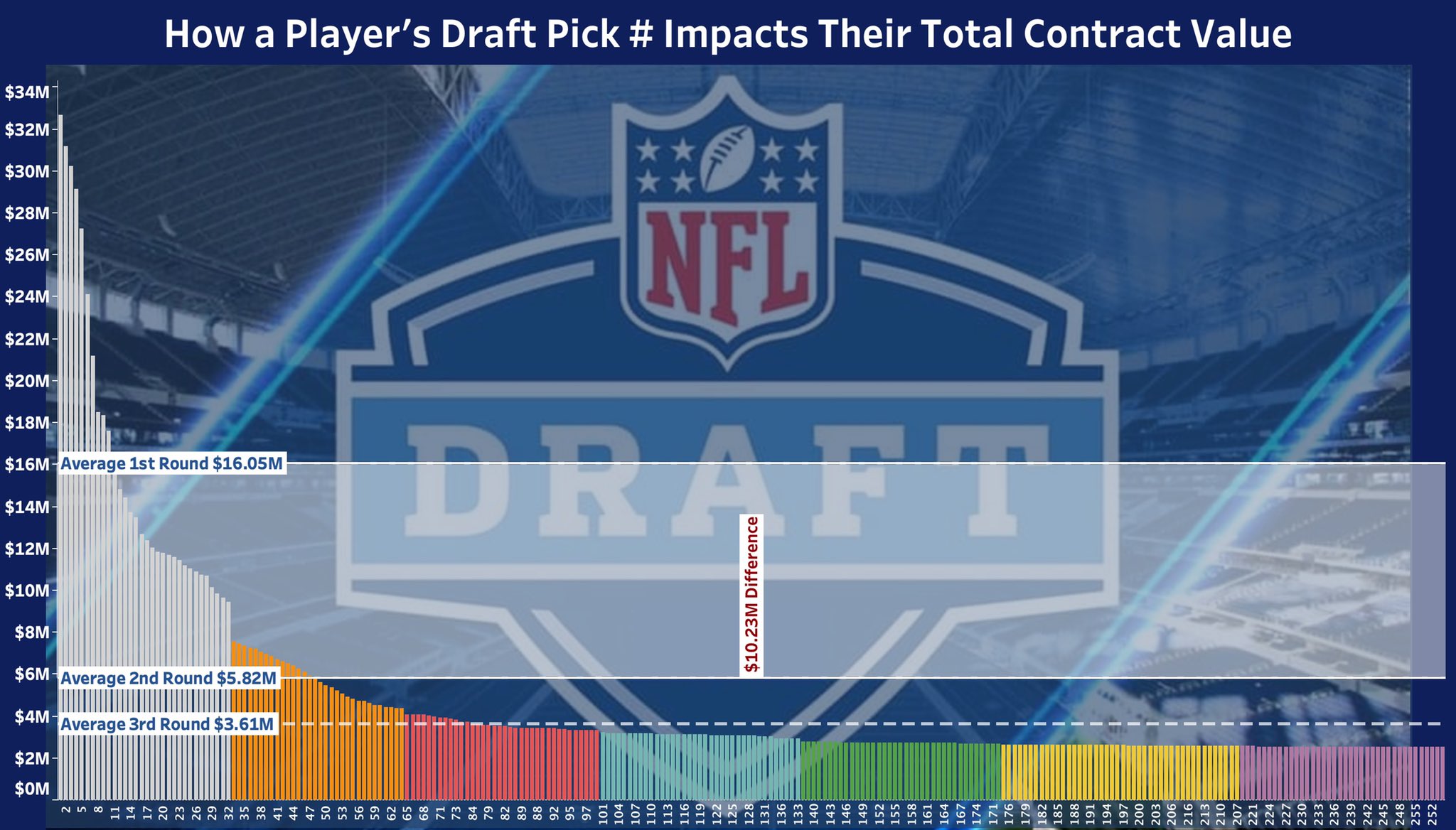
The most obvious takeaway from this is the massive spike in money that occurs in the 1st Round. 1st Round picks make significantly more than any others in the draft while there is only a small difference between the subsequent rounds. But what is also important to recognize is that MOST of the money is actually in the top half of the 1st Round with a major jump ~pick 7. Those selected in the second half of Round 1 are compensated closer to those selected in Round 2 than to the first half of Round 1.
What does this mean for Jacob Eason? Well, unfortunately, he is primarily being predicted to go at the end of the 1st Round, meaning that financially he is closer to being a second round pick than an average 1st Round pick.
For the sake of analysis, let’s assume that Eason would go 30th overall if he were to enter the NFL draft early.
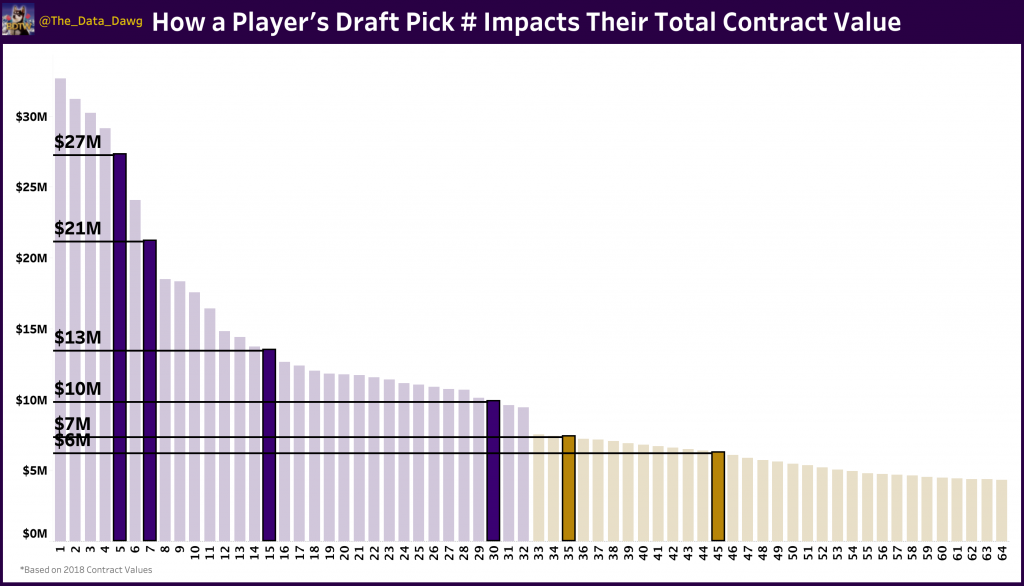
With this assumption, Eason would be poised to make ~$10m and if he were to enter the draft and fall five picks further than he had initially anticipated, this total would be ~$7m. Given the number of QBs in the draft and an underwhelming statistic junior season for Eason, it is unlikely that he would make a leap up much beyond 25 this year, which would net him ~$11m.
The first question that spawns is how much would Eason need to move up in order to offset his additional year in college if he chose to stay?
Well, given that $10m contract would equate to $2.5m per year, that would mean that all things equal and ignoring how staying for additional development may increase future contract’s likelihood and value, Eason would need to raise his draft stock to approximately the 17th pick overall to cover the additional year in college.
The next question this leads to is how likely is it that Eason can move up to the 17th pick or higher?
Well, to answer this, let’s start by looking at when QBs are usually taken in a draft:
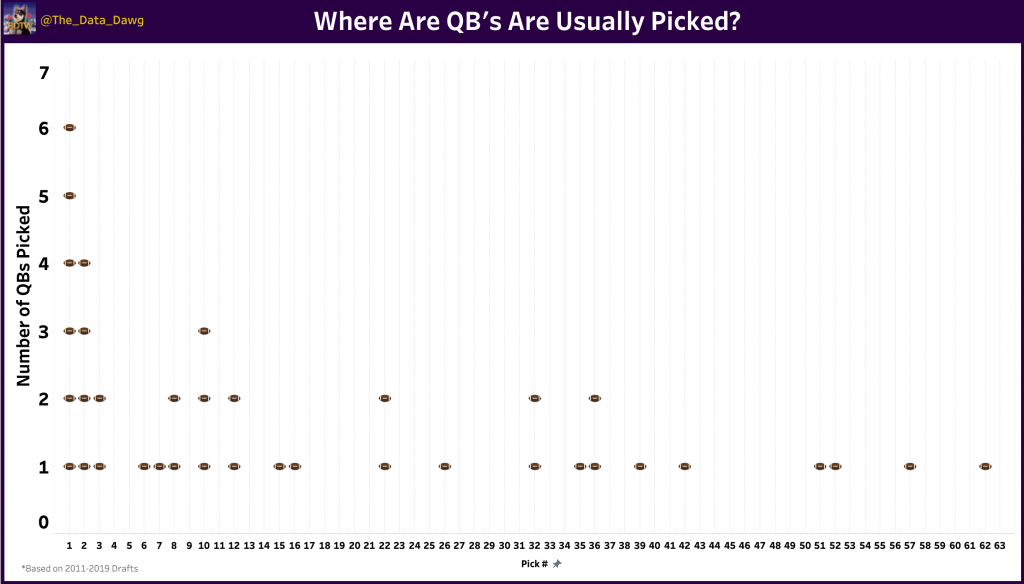
QBs, being the most important player on a football team, are generally some of the first players off of the board. In fact, in the 2011-2019 draft, more QBs have been taken in picks 1-3 than in 4-21. Very few QBs tend to go “late 1st Round” and instead are heavily concentrated in the top half of the 1st Round or fall into the 2nd Round where QB starved teams are having their second pick.
What does this translate to for Eason? Well, it presents two key takeaways: 1. there is significant risk that even with a late 1st Round projection he may fall into the 2nd Round and 2. marginally increasing his draft stock could result in a significant jump in the 1st Round and in contract value.
Another way we can view this is by number of QBs taken above him. If only a certain number of teams are looking to take a QB in the draft (especially 1st Round), passing even one QB in the list has significant impact on draft stock. Let’s take 2018 for example:

In 2018, there were 5 QBs picked in the 1st Round of the draft but where I would like to focus in on the one taken with the 32nd pick of the draft (where Eason is very likely to be taken). If this QB had managed to pass just one QB on the list in front of him, his total contract value would have doubled from $9m to $18m. Similar comparisons can be drawn with sizable gaps between QBs taken in the first half of the 1st Round and the next QB taken every year from 2019-2015 (though I used 2018 as this was the only with with a QB taken at ~30).
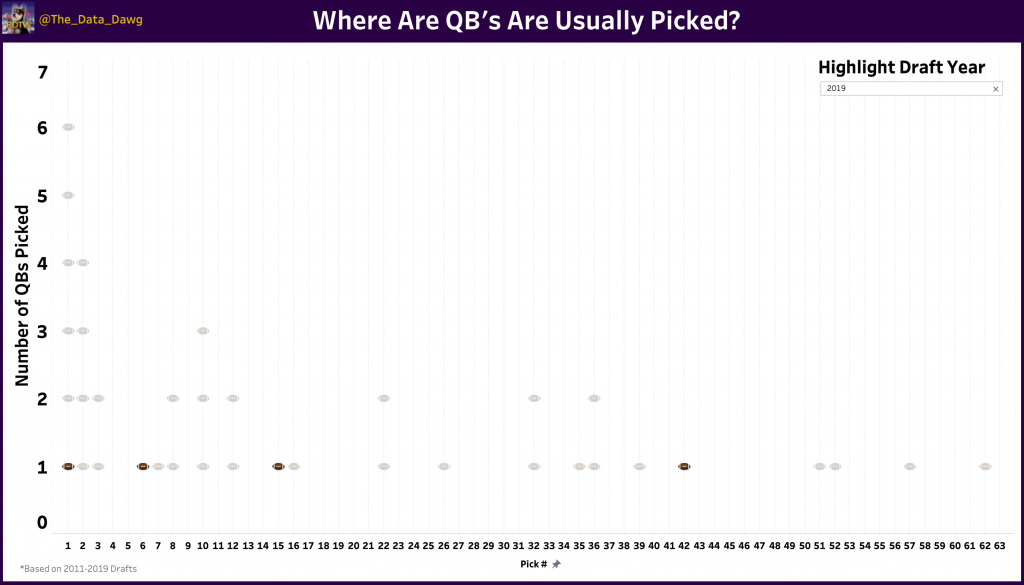
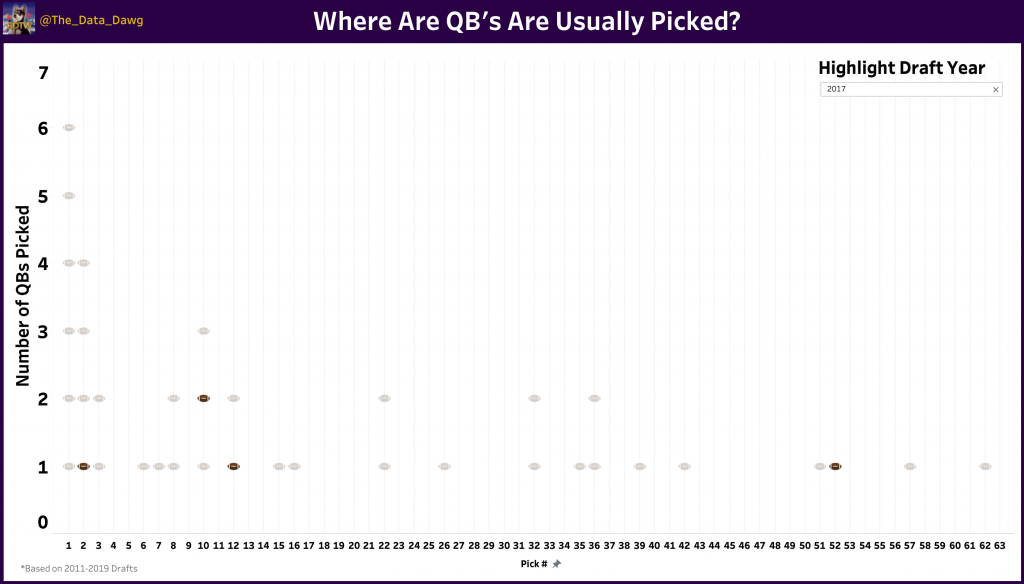
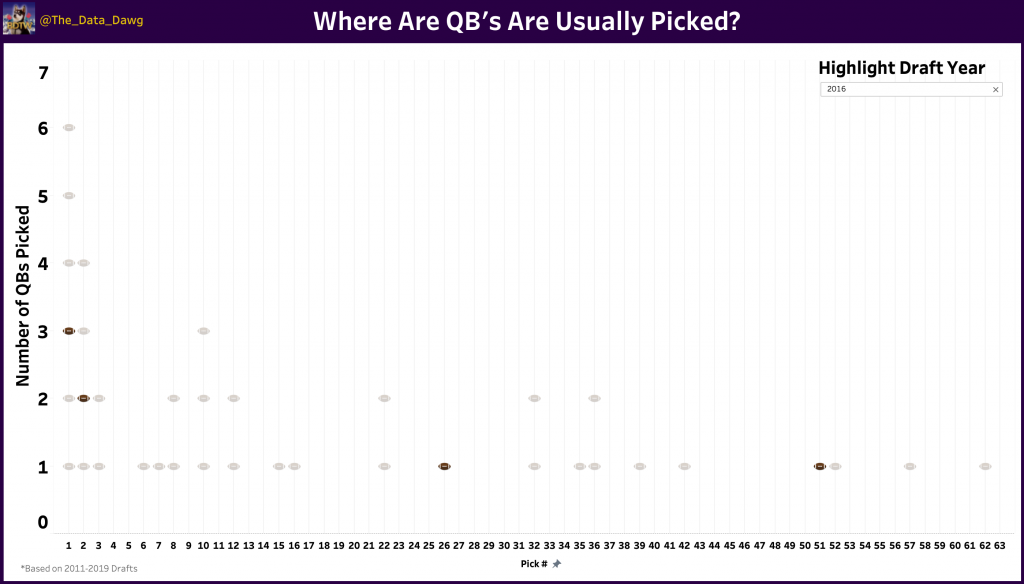
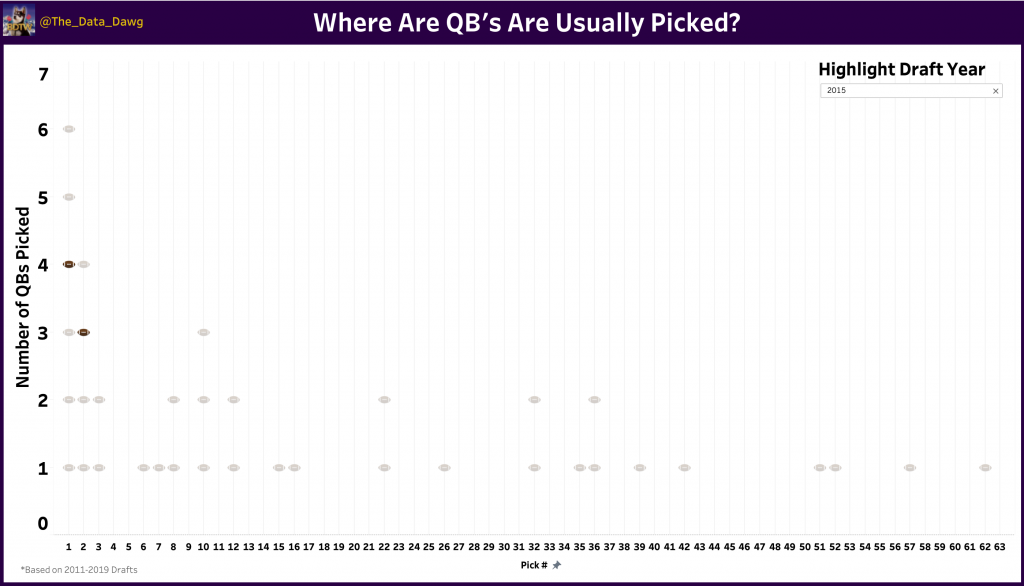
So to answer the question is how likely is it that Eason can move up to the 17th pick or higher, it very much depends on whether Eason feels that he can pass 1 QB on the list in front of him because that is all that it would likely take in order to more than cover the extra year spent in college.
Should Jacob Eason stay for his last year of eligibility? Even with data, there is not an easy answer to this question. It really comes down to Eason’s risk tolerance, confidence in his ability to develop, confidence in 2020’s offense under new HC Jimmy Lake, and the ever present concern around potential injuries (which hopefully would be mitigated by an insurance policy).
If I were in his position, I would opt to stay. I believe that the upside of him staying outweighs the risk of him falling or staying at the same draft position and I believe that he has the talent to be the best QB in the draft in 2021. Really what it comes down to whether he wants to bet on himself for a massive payday or is comfortable with a very solid contact now.
I would love for Jacob Eason to stay and find himself as the #1 pick overall, more than tripling his expected contract value. But, I would also love to see a man fulfill his dream of being an NFL QB and setting up his family for life even as a late 1st Round pick. Regardless, Eason is one of the most talented players to ever suit up for the Purple & Gold and I can’t wait to see him make Husky Nation proud at the pro level.

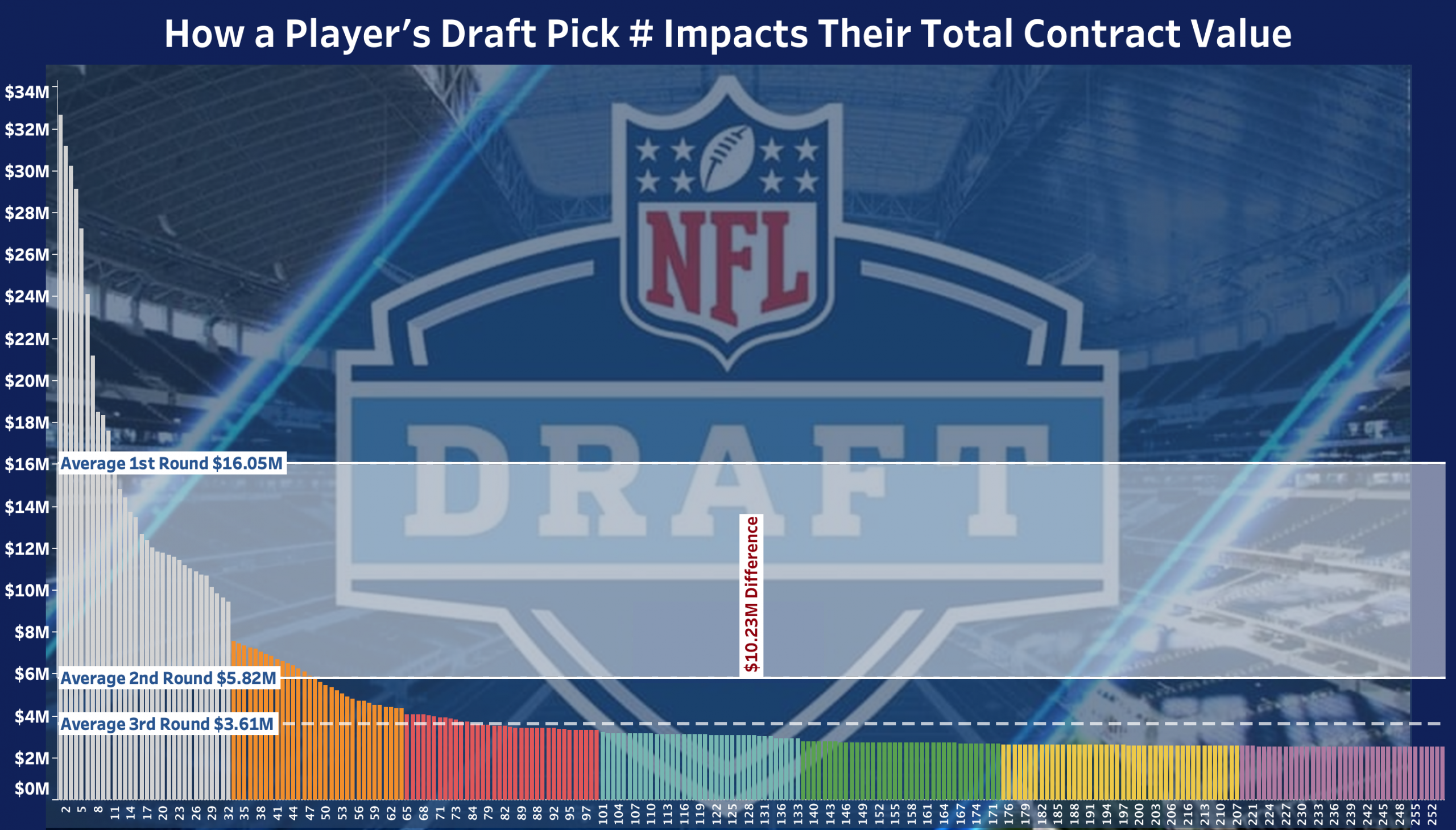
2 Comments